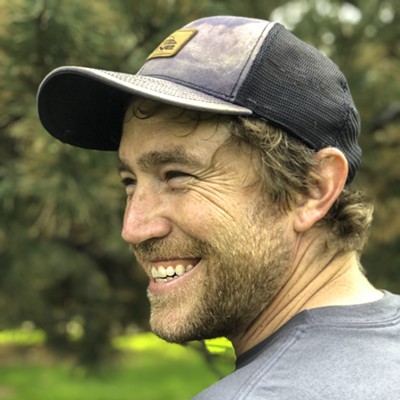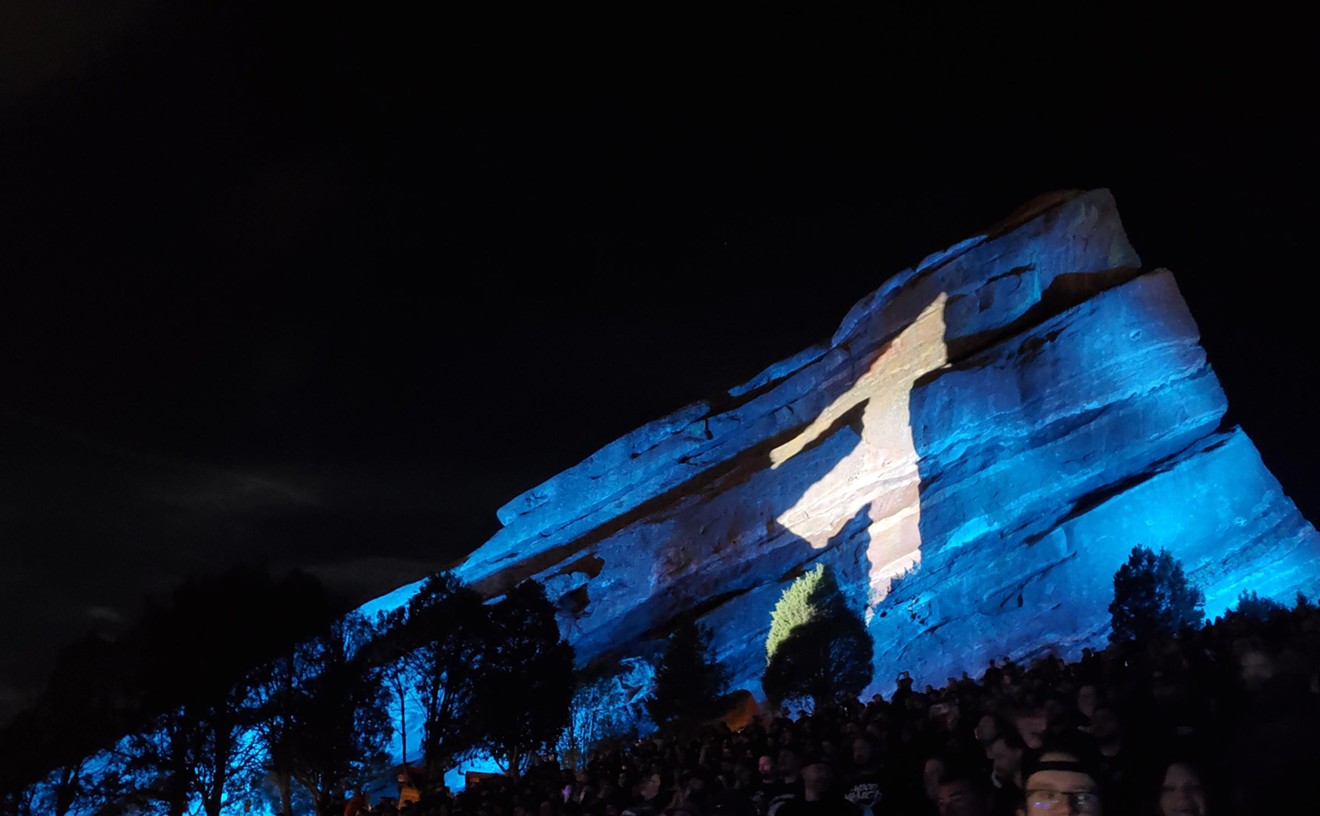Carter Matthews, better known these days as Toy Box, is bringing a new voice to the Colorado EDM scene. With a live show complemented by live instrumentation -- namely, a 1911 Gibson mandolin -- Matthews is putting a new slant on dance music. We spoke with the young producer about the multitude of influences he draws from, how he got into producing music when he was in high school, and what he believes makes the most audience-engaging show for a one-man performance.
See also: New local dance music/mixes from PowTron, Paul Basic, Mux Mool and Toy Box
Westword: How long have you been in music production?
Carter Matthews: In freshman year of high school, I joined an audio production class, but it turned out to be really just three kids -- two of my buddies -- and we were just working with an old-school version of Pro Tools. For two years, I took that using the program, and that just got me into the idea of it. It was all self-taught, because the teacher thought it was a better idea to experience it rather than "teach" it. I really developed my ear for it, which I feel is really important.
All four years of high school I took that class, and then I started getting into Pretty Lights and all that, and noticed they were using Ableton Live, so I got a demo of that and started experimenting with that. I completely flipped from Pro Tools to Ableton because it's way more fun being able to record your own sounds, loop them an layer them, and the whole visual appealed to me.
I don't really know if I was "producing" for a couple years, but I was getting into it in high school. When I got into Ableton, I really started learning and seeking knowledge in production. Now that it's 2014, I would like to say that I've been producing for almost four years.
What other instruments do you play?
The first instrument I played was violin, so that got me into classical music. Then I picked up bass guitar, electric guitar, and got into classic rock. From there I started learning synthesizers through programming, which I guess is kind of an instrument, and then I started playing drums. That was my main instrument for a while.
I auditioned at Berkley College of Music in Boston after going to an audio-production workshop, and I really wanted to go there and get that degree. Unfortunately, I think I played too many instruments, in a way, because I didn't really focus on one. Throughout my life, I just picked up more and more, so I didn't get accepted. I ended up going to DU and taking audio production there for a year.
Where are you from originally?
I'm from Florida, but I was born in New Hampshire, even though I only lived there for a year. Then I moved to Steamboat Springs for a couple years, then back to Florida, and then back to Denver for college.
What instruments are you utilizing now in your live shows?
I was given my great-grandfather's mandolin in 2012, and that was a really inspirational moment for me. My grandmother gave me her dad's old mandolin. It's a 1911 Gibson. It's only been a little over a year, but I've played it every day. My first show on Halloween in 2013 at The Donkey OT, I ran the acoustic mandolin through the microphone because I wanted to have a live aspect.
So I thought playing an actual instrument would be more interesting for people to watch, and for me to play. It's better for me because I get into the music more than just pressing samples. I'm more engaged with the audience that way. It comes to be a better show.
How do you classify your music?
Definitely has this really laid-back, easy-to-listen-to, down-tempo, ambient, hip-hop sort of sound. It's eclectic. I try to include any type of music that I come across, because that adds more meaning to the music, for me. I will find classical music, or Native American, or Chinese traditional...pretty much anything goes. I'll just explore music and take influences from folk, or rock, or jazz, and just include that in this electronic-hip-hop genre.
There's definitely a range of tempos and teases. I don't know how to describe it. The vibe is different between each song. It's hard for me to give it one name, or genre, because most of my descriptions are taken from how others describe it. For me to do it is overwhelming. I know what went into making it, so it's really hard.
As dumb as the term EDM is, it really just applies. Maybe like a rhythmic Picasso? How do you meld all that together because it's all over the board?
I guess. I am early in the game, but I've been to shows, and I think the most successful shows are the ones that stick with one idea, or one style. For example, I opened for Birds of Paradise at Casselman's and they stuck with a really narrow tempo range, and it all flowed together as one song. The songs I make I can kind of split into groups based on tempo and feeling, so if I have a short set, I will try to keep it smooth and not change the sound too much and just flow on one style.
Maybe [I can] do a downtempo set, but that doesn't mean you can't change it. It's still a work in progress. When I made songs in the past, I didn't plan on going from one song to the next, so that's been happening recently. Now when I write a song, I want to build off another one that I already wrote, so that when I play live it will translate and flow way more smoothly, rather than crazy transitions. I do play all my own stuff for my sets.
Are you playing instruments live? Do you improvise when playing them?
I've been playing electronic mandolin, and that's what I've been sticking with. Because my songs are mainly based off of chord progressions that I've written on mandolin, I know how to play them. I know the songs really well, so half of the time I am replacing the recording with my live playing, and the other half I am improvising over the track. There is a lot of improvisation during the set, because that keeps it fresh and new. I want to express something that you can't record and have in song, and that adds a whole new dimension to the live show.
• BACKBEAT'S GREATEST HITS • - The fifty best rap lyrics of all time - The ten biggest concert buzzkills - Five more concert buzzkills - From Phish to Floyd, the ten best light shows
Follow @Westword_Music











